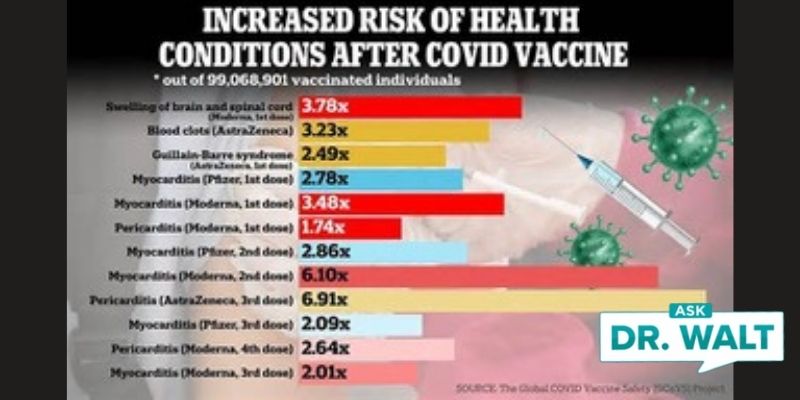
March 12, 1944 – Dad’s admiration for the amazing Army nurses
March 12, 2024
March 13, 1944 – Stories of Army nurses in WWII that will swell your heart
March 13, 2024https://www.forbes.com/sites/ariannajohnson/2024/02/19/covid-vaccines-linked-to-small-increase-in-heart-and-brain-disorders-study-finds-but-risk-from-infection-is-far-higher/?sh=6a31bf5c60ffA dear friend was deeply alarmed by this recent news headline, “Largest Covid vaccine study yet finds up to 3 times greater risk.” He wrote, “I thought you might want to read this since you follow this stuff so closely. But, quite frankly, this news scares me to death. I’m not sure I want to take any more COVID shots. But I’d sure appreciate your take on the study.”

After actually reading the study, here’s what I wrote my friend, who had neither read the news story or the study — which I suspect is par for the course for most of us, but can be problematic when making health decisions.
Dear friend,
The headlines sound scary, don’t they? However, there’s nothing new here, and overall the study is very reassuring. I’ll try to explain.
The safety signals or adverse events identified in any study should be evaluated in the context of their frequency, severity, and clinical relevance. Then, the overall risk–benefit evaluations of vaccination should take the risk associated with infection into account.
In other words, what causes more of these rare events? An association with the vaccine? Or, an association with the infection?
Multiple studies have demonstrated a much higher risk of developing every one of these problems reviewed in this study, such as Gillian-Barr, myocarditis or pericarditis, or encephalitis, from actually getting the COVID infection as compared to the COVID vaccine.
For example, the chances of having a neurologic event after a COVID infection are up to 617-fold higher than following a COVID vaccination.
The same as true for myocarditis (almost twice as likely with infection) and Guillain-Barré syndrome (six times more likely with infection).
Furthermore, the vast majority of the vaccine-associated cases were mild and resolved, which is not true of the COVID disease-associated cases.
This study is huge, as it evaluated data from nearly 100 million doses of COVID vaccines across eight countries. Wowser! And this makes its conclusions about COVID vaccine safety even more powerful.
To see this, one has to understand the difference between relative risk and absolute risk.
For example, among the over 99 million folks that had the COVID vaccine, 76 were expected to have developed Guillain-Barré syndrome, but 190 cases were reported.
That’s a relative risk of 2.5 (190/76). So, we could say you’re 2 1/2 times is likely to get GBS with a COVID vaccine compared to not taking the vaccine. And, we’d be telling the truth. Sounds pretty scary, right?
But the absolute risk is only 114 cases (190-76) out of 99 million. That’s an absolute (real) risk of about 0.00000115%. All of a sudden the number is not so scary, is it?
But here’s an even bigger number: 13.5 billion. That’s how many COVID vaccines have been administered worldwide. Around 71% of the world population has received at least one dose of a COVID vaccine.
As a result, one study estimated that in just their first year of existence, COVID vaccines saved nearly 20 million lives.
Overall, this new study, continues to be very reassuring and shows that being vaccinated is by far the safest choice as compared to the risk of not being vaccinated.
Dr. Walt
© Copyright WLL, INC. 2024. This blog provides healthcare tips and advice that you can trust about a wide variety of general health information only and is not intended to be a substitute for professional medical advice, diagnosis, or treatment from your regular physician. If you are concerned about your health, take what you learn from this blog and meet with your personal doctor to discuss your concerns.

